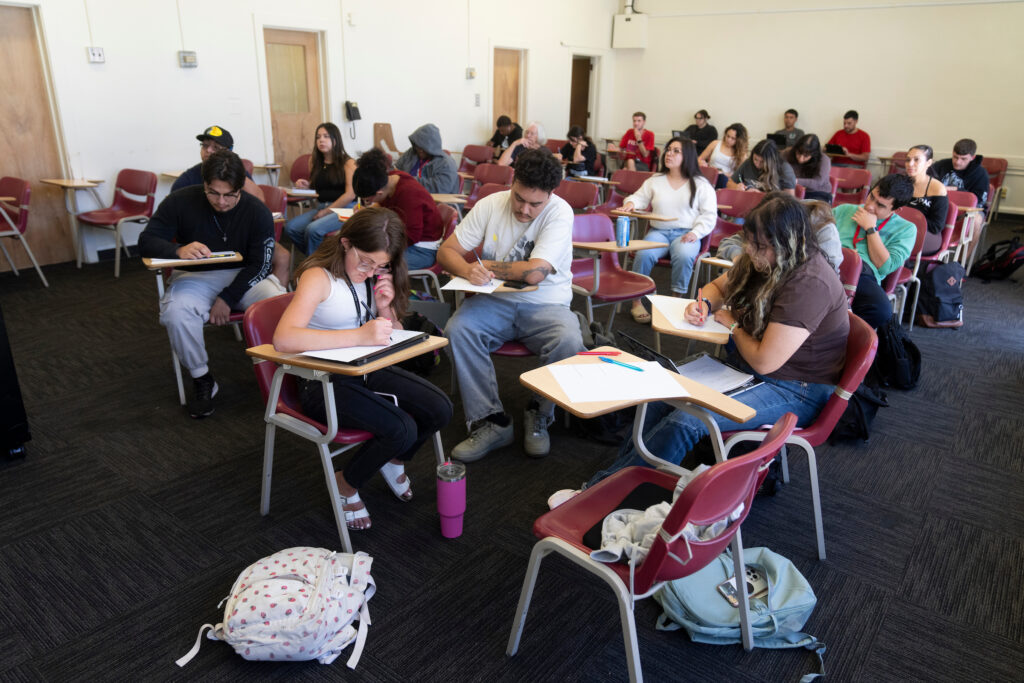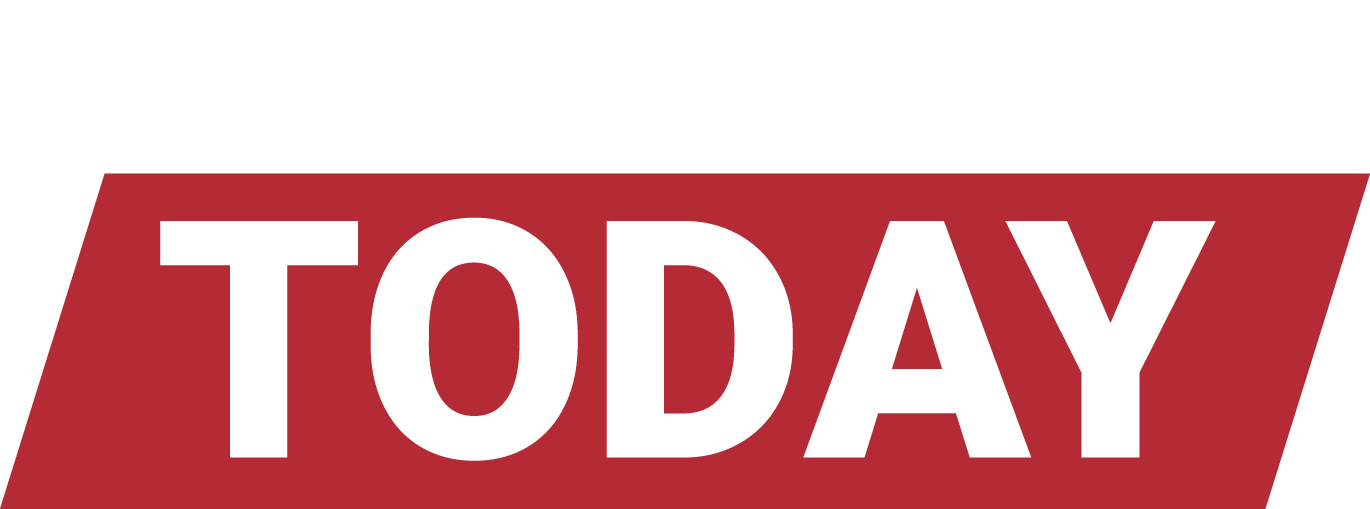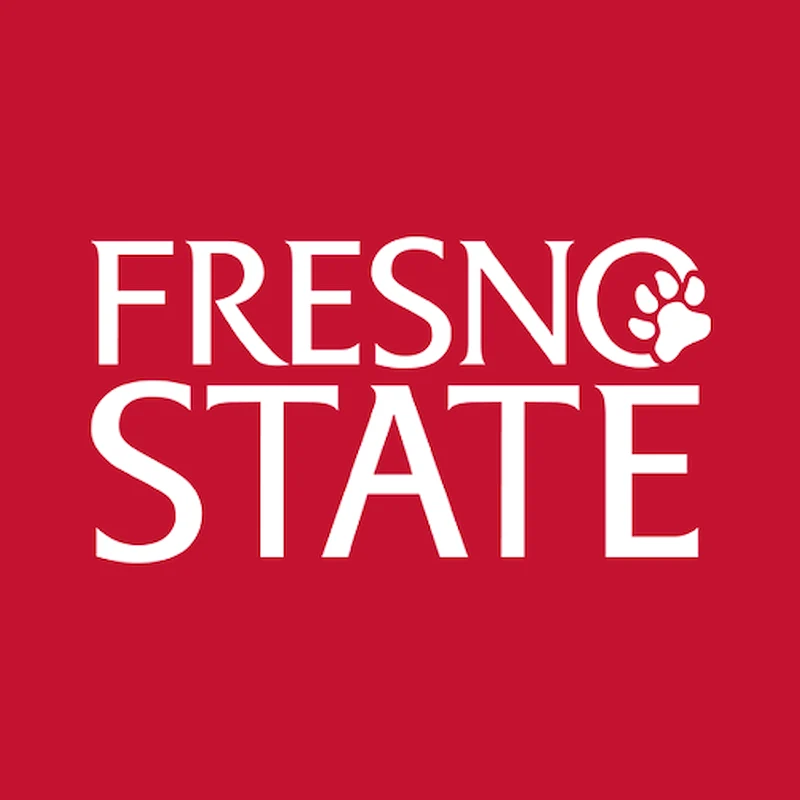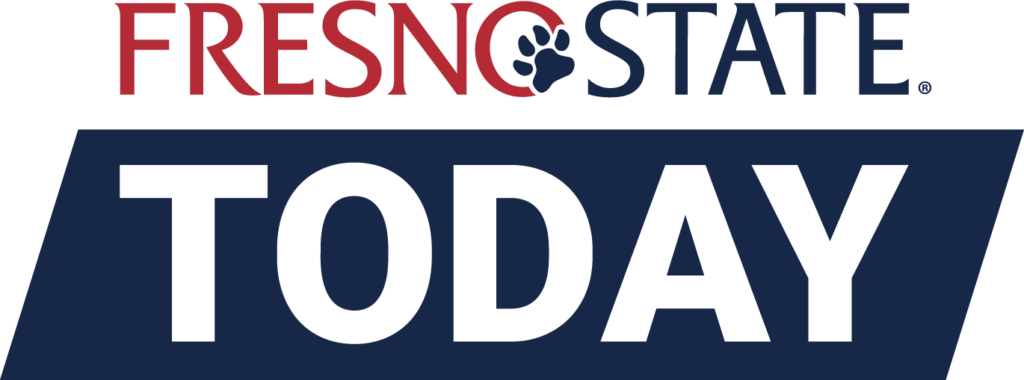At the front of the debate class, one student gave a speech arguing why the federal government should mandate four-day workweeks, making clear points to support the position. Near the podium, teams huddled in two circles, taking notes intensively and occasionally glancing up at the speaker.
The two teams represent the affirmative and negative sides. The debate follows the International Public Debate Association format, which has been slightly modified to accommodate more students during the classroom practice sessions.
As the debate progressed, some presenters generated excitement, making their arguments land with precision and passion, while others struggled with their points.
The final presenter for the affirmative, Lorenza Parente, clearly summed up her side’s argument, closing the practice debate session. This is Parente’s first time taking a forensics course.
“I’ve been loving it so far,” Parente said. “It’s super fun hearing other people’s opinions on topics and also sharing yours.”

This forensics and debate class is the same course that has been taught at Fresno State for over 50 years through the Department of Communication in the College of Arts and Humanities. It’s tied to the debate club, and participating students also have the opportunity to travel and debate against other universities as the Barking Bulldogs speech and debate team.
This semester, six of the students in the class are part of the Wayfinders program in the Kremen School of Education and Human Development. This is the fourth semester Wayfinders students have participated in the debate class.
Wayfinders is a two-year certificate program designed for young adults with intellectual or developmental disabilities. The goal of the program is for students to have productive and fulfilling lives through their own autonomy. While in the program, they live in off-campus housing, learn to develop a chore routine, pay bills, shop and cook. They also participate in work experience and vocation-focused training activities and take a minimum of six units of college courses per semester. Participants are encouraged to get involved in the community and try new things.
“Public speaking and self-advocacy are subjects that the vast majority of students struggle with. For Wayfinders students in particular, many of them have never been given space to advocate for themselves,” said Connor Scott-Calaway, university inclusion coordinator for Wayfinders.
Parente jumped into the forensics class, becoming the first Wayfinders student to travel and compete at a different campus, San Francisco State University.
“Two judges said I did super-well,” said Parente enthusiastically. “It was fun getting to travel with [the debate team], and I felt like everyone who went was nice.”
For Arlette Rodriguez, forensics coach and communication lecturer, Parente’s involvement was more than the competition; it was about communicating and interacting with the other students on the trip.
“She made friends with a lot of her peers, if not all her peers that went on the team,” Rodriguez said. “They were eating In-N-Out together, just bonding and practicing together. It was great, and we want to see more of that.”
Rodriguez’s commitment to inclusive education has deep roots. She traces her advocacy for students with disabilities to a medical office when she was 12, when her brother, who has both visible and invisible disabilities, went to be evaluated for therapy.
“My mother took in my brother because he can’t walk, so he is in a wheelchair,” Rodriguez said. “She came out maybe 10 minutes later, and was very upset, and she didn’t really show much emotion. She just thanked the secretary, and we left.”
Before the visit, her mother had been excited about the therapy. However, during the ride home, her mother was quiet and distant.
“How did it go?” Rodriguez asked.
Her mother replied that they could not help her brother because he was “too disabled.”
In a country moving toward inclusivity and a medical system that claimed to provide care for everyone, they had found the limit, Rodriguez’s mother lamented during the car ride home. It was heart-wrenching.
“Why are they giving up on my child?” she recalls her mother saying.
About 10 years later, Rodriguez had just received a freshly minted bachelor’s degree, started her master’s in communication and was searching for direction. With her first paper of the semester approaching and stress building, she needed a topic.
“I talked to one of my professors, Dr. Amin Makkowy, and he led me to this new interest in communication – advocacy for individuals with invisible and visible disabilities,” Rodriguez said. “I dove into the research and started writing this paper. Then it just continued going to where I applied disability advocacy in all my papers.”
As part of her master’s project, Rodriguez began developing material and curriculum for awareness and accommodations. During her final year as a graduate student in 2023-24, she brought Wayfinders students into the forensics class.
“What really worked, even though it could be minimal, was sitting down and having a one-on-one conversation with each student, discussing step-by-step what their goals are,” Rodriguez said. “What do they want to achieve? What do they like? What passions do they hold?”
By focusing topics on the students’ interests and passions, which are then directly applied to forensics through their platform and informative speeches, they are able to focus on communicating – a skill which has broad implications for independent living. Debate teaches students how to advocate for themselves and present arguments without relying on a representative.
“Where I have seen the biggest change is in classroom participation and engagement,” Scott-Calaway said. “Many of our students who take the debate course show improved levels of participation in classroom lessons/activities in their preceding courses. I have also seen an increase amongst these students in confidence with communicating with professors and classmates, not seen amongst other students in the Wayfinders program.”
Rodriguez said she has observed similar behavior. The Wayfinders students, she says, are participating more in class and engaging in conversations with classmates outside of the Wayfinders program. They have also shared with her real-world accomplishments, such as having a positive conversation with their boss.


The shared goal of the forensics program and Wayfinders is to create a learning environment that is increasingly inclusive, supportive and empowering for every participant.
“I strive to explore innovative, progressive and inclusive approaches to teaching — methods that ensure communication education is accessible and meaningful for learners of all abilities,” Rodriguez said. “I view my classroom not only as a space for instruction but as a platform for connection, creativity and empowerment.”
Shail Lopez-Ortiz, executive director of Wayfinders, expressed her gratitude for Rodriguez’s work in connecting the Wayfinders and debate programs.
“This collaboration has been incredibly impactful, as we’ve witnessed students with intellectual disabilities, who participated in the class, truly flourish,” Lopez-Ortiz said. “Wayfinders has long worked to help instructors understand the value of inclusive education, so it was especially refreshing to see a Fresno State student like Arlette take the initiative to create a partnership that benefits both Wayfinders and communication students alike.”
Parente plans to complete the Wayfinders Work Readiness and Life Skill Certificate in spring 2026. She is considering pursuing a bachelor’s degree. Rodriguez plans to continue to work closely with the Wayfinders to enhance the student experience and enrollment opportunities. Her long-term goal is to expand her activism through research and achieve a doctorate degree.


